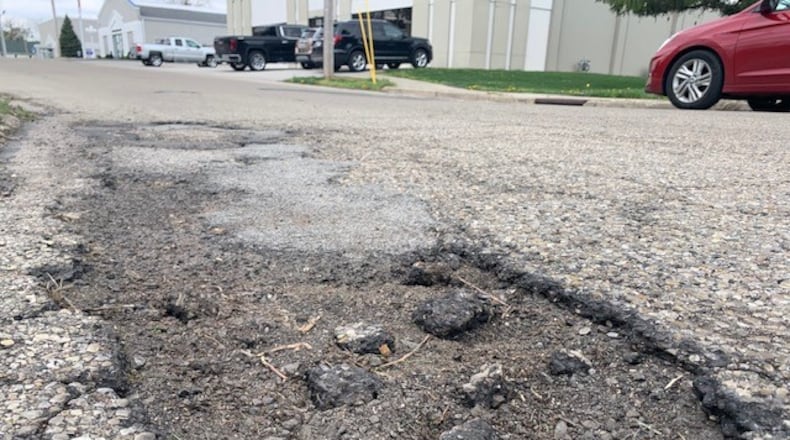The 0.96-mill parks and recreation levy would pay for maintaining parks, equipment and new additions and cost the owner of a $100,000 home $33.60 a year if approved. It would generate $118,304 a year for the city for five years.
This will be the second ballot appearance for the parks levy.
“The parks and recreation levy proceeds will be used for maintaining our 100+ acres in our six city parks by preserving and enhancing playground equipment, installing walking paths, improving our basketball and tennis courts, replacing trees that were removed due to the Emerald Ash borer, adding healthy activities within our parks such as a pickleball court, a Frisbee golf course, and an outdoor fitness park to name a few,” Brookville City Manager Sonja Keaton said.
The money also would help maintain buildings in the parks.
The 3.85-mill levy request for street and bridge work will cost the owner of a $100,000 home $134.75 a year. It would bring in $474,447 a year for five years to restore the city’s resurfacing program that was abandoned about four years ago.
“The streets and road levy proceeds will be used to restore our annual street repaving program for our 34½ miles of roadway within the city limits and provide matching funds for grants/loans to repair streets. Our last annual street repaving program was completed in 2017,” Keaton said.
City council conducted a survey for parks and streets last summer to understand residents’ position on the levies, Keaton said, and they found most residents were in favor of both. However, election results suggest otherwise.
This is the third time the roads levy will be before voters. In 2017, over 80% of voters rejected a 2.5-mill levy request. It gained more votes in 2020 but still was defeated with more than 52% against the levy.
Homeowners with a property value of $100,000 would have paid $40.60 annually for the parks levy and $162.05 annually for streets and roads if the 2020 levies had passed, according to the Montgomery County auditor. The parks levy was expected to generate $125,000 yearly for the next five years and $500,000 yearly for the city over five years.
If they don’t pass this year, Keaton said the city would have to decide on what to do next, which could include cuts.
“Council will have to decide if they want to put property tax levies on the November ballot, or seek additional funding through changes to our existing income tax and/or make major cuts,” she said. “Additional cutbacks will not be necessary if the levies pass.”
About the Author

